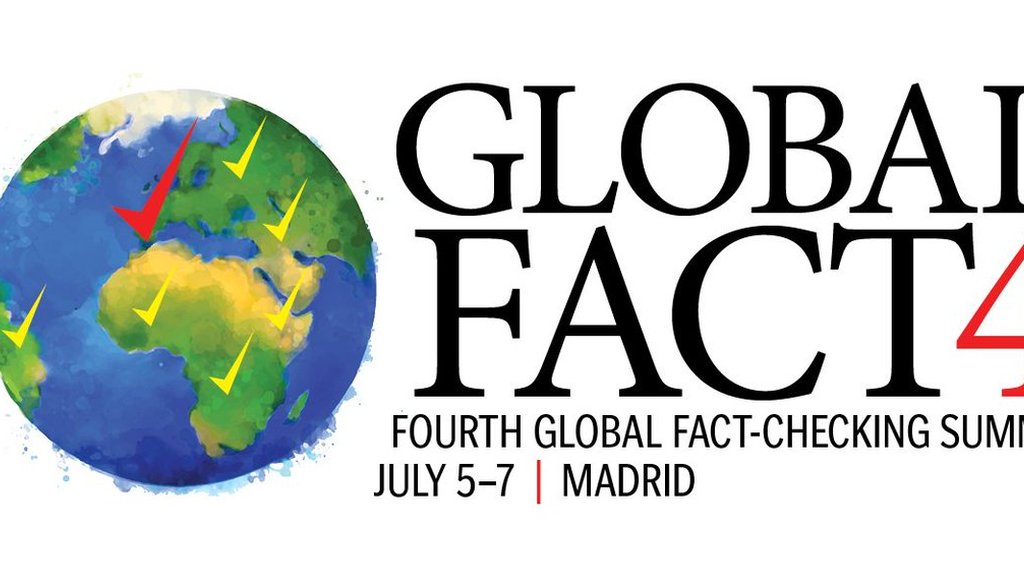Get PolitiFact in your inbox.

MADRID — For four years in a row, fact-checkers from around the world have gathered together to discuss best practices and highest principles. We come together to confab, commiserate and encourage as we all go about our work of holding the powerful accountable and giving our readers the facts on what’s true and what’s not.
As editor of PolitiFact, I’ve attended all of these Global Fact conferences. This year in Spain, two big issues were clearly at the forefront for close to 200 fact-checkers: technology and trust.
These two themes say a lot about where we are as fact-checkers and as a society.
Never before has there been so much information at our fingertips. And fact-checkers are doing important work to get accurate, verified information in front of people.
If someone searches on the web these days, odds are they might get a fact-check returned as one of their results. Here’s an example: Search on whether the president can disband the Supreme Court -- a claim that has circulated recently on Facebook -- and a highlighted result might be a PolitiFact report saying it’s not true. That’s because new tools are bringing fact-checks to the front of Google results.
Thanks to an initiative called Share the Facts from the Duke Reporters’ Lab (a group headed by former PolitiFact editor Bill Adair), computer code now alerts search engines like Google that a report is a fact-check and allows the search service to highlight the result.
Over in the United Kingdom, fact-checkers are experimenting with automated processes to identify and flag false statements and then present corrective information simultaneously. The UK fact-checkers at Full Fact are using those tools to identify which talking points are being repeated the most often. They can then tailor their fact-checking reports accordingly.
Both efforts are exciting and point to new ways of getting accurate, vetted information in front of people, using the power of coding.
With all the technology, though, trust remains the trickier issue.
I hear from readers on a regular basis that they don’t know what information sources to turn to or to believe. Trust in the media is low.
Several speakers mentioned the high levels of partisanship among the general public, and that seems to be driving a lack of trust in independent media. Thomas Wood, a political scientist at Ohio State University, said that a growing body of research shows that partisanship is a social identity that can overpower critical thinking.
When a fact-checker’s findings come out against people’s preferred political views, people can perceive fact-checking as threatening their sense of identity and view the fact-checks themselves with hostility. Alternatively, when people see fact-checks that support their political views, they simply cite the fact-check as a win for their side and ballyhoo it on social media without really engaging with the report’s nuance or complexity.
Both of those partisan reactions are problems, for society and for fact-checkers. At a minimum, it means partisanship is turning our public discussions into win-lose sporting contests, where everyone is chalking up points for their favorite teams. For fact-checkers, it means segments of the public write us off as either for or against them, when we’re actually trying to provide accurate information to everyone.
Reaching out to audiences that are suspicious of fact-checking remains one of our most important tasks, and we’re still figuring out the best ways to understand and address concerns about our processes and work. At PolitiFact, we’ve published a document online called Principles of the Truth-O-Meter, to help people understand how we decide which facts to check and the verification processes we use.
No one at the recent Global Fact conference had easy answers to issues of public trust, but we all remain committed to exploring processes that can increase readers’ confidence in fact-checking. If you have ideas, please email me at [email protected] using the subject line reader trust.
The Madrid meeting was hosted by the International Fact-checking Network, housed at the Poynter Institute in St. Petersburg, Fla. (Poynter, a school for journalists, is the nonprofit owner of the Tampa Bay Times and PolitiFact.)
The fact-checkers’ network grew out of the first Global Fact meeting, in London in 2014, and is dedicated to increasing the reach of fact-checking around the world. Plans are already underway for Global Fact 5 in 2018. In the years ahead, fact-checkers will continue to meet and look for ways to promote accurate information, with technology and trust.
Our Sources
PolitiFact





















































